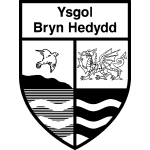Additional Learning Needs (ALN)
At Ysgol Bryn Hedydd we endeavour to provide the best educational opportunities for each child in our school. We have a 'can do' learning culture which enables all children to reach their maximum potential.
ALN stands for Additional Learning Needs and has replaced the term 'special educational needs'.
For the majority of children and young people, their needs can be met through high quality teaching and learning. All education settings should put in place differentiated teaching or other targeted support to help pupils make progress, where appropriate. A small number of children and young people, however, will have ALN, which requires Additional Learning Provision (ALP). ALP is additional to or different from educational or training provision, which is generally available for all. Explaining how we meet your child’s needs is known as the graduated response.
As a school we recognise that all pupils come to school at different stages and with different needs, however there are some children who show signs of being more able and talented or have a learning difficulty, which calls for special educational provision to be made for him or her.
A child has a learning difficulty if he or she:
- has a significantly greater difficulty in learning than the majority of children of the same age.
- has a disability which either prevents or hinders the child from making use of educational facilities of a kind provided for children of the same age in schools within the area of the local educational authority.
- has a range of underlying factors such as cognitive, physical or sensory difficulty, emotional and behavioural difficulty or difficulty with speech and language or social interaction.
Such children may need additional or different support from that given to other children of the same age.
At Ysgol Bryn Hedydd we aim to:
- Ensure that early identification of a pupil's needs is made;
- Ensure that all pupils reach their full potential;
- Ensure that parents are fully involved from the onset;
- Work in partnership with parents, pupils and other agencies e.g. Educational Psychologist, Speech Therapists, Social Workers, School Nurse etc.
- Secure the necessary provision for any pupil who has additional learning needs
What to do if you think your child needs help.
If you are concerned about your child’s progress, speak to the school directly. Your child’s class teacher will:
-
Provide extra support for your child and will review this regularly to see if any further support is required.
-
Get further advice and support from the schools Additional Learning Needs Coordinator
- Get advice from specialists, such as an educational psychologist or a speech therapist.
If the Additional Learning Needs Coordinator feels it is possible that your child has long term learning needs, they may consider that your child requires an assessment of ALN. This assessment may involve observation, tests, medicals and interviews with your child and ALN specialists.
School Age Pupils
For children who are of compulsory school age and in a school setting, the class teacher or Additional Learning Needs Coordinator is the first point of contact. They will be able to listen to your concerns, and if requested, begin to consider if your child has Additional Learning Needs. This decision will be made within 35 working days, unless the school requires further specialist assessment through the Local Authority or Health Services, in which case a further 12 weeks may be required.
Universal Provision
Universal Provision is the name given to the provision, which is routinely available to all children and young people and may be provided at a whole class, small group or individual level. It is monitored and tracked in line with school procedures and could be a short or longer term provision.
Additional Learning Provision
If a child or young person does not appear to be making progress, then ALP may be required. This will involve the needs of the pupil being identified in a person-centred way and could lead to enhanced and alternative provision being provided to support the pupil in making progress. Children and young people who access ALP are classed as having ALN and as such will require an IDP.
Support through the medium of Welsh
One of the core aims of the ALN Act is to create a bilingual support system for learners with ALN. Local authorities and governing bodies are required to consider whether a child or young person should have a Welsh-language Additional Learning Provision (ALP); this duty is ongoing, rather than a one-off decision. If a child or young person needs ALP through the medium of Welsh, the school, or Denbighshire County Council will take all reasonable steps to ensure the provision.
Individual Development Plan
An Individual Development Plan, or IDP, replaces Statements of Special Educational Needs and in some cases Individual Education Plans. These plans will be person-centred and may include multi-agencies, ensuring that the child or young person is at the centre of planning their provision.
IDPs will be phased in over the next three years following the Welsh Government timetable, as the Statements and Individual Education Plans used currently are reviewed. Plans will be reviewed at least annually and will be created with the child or young person and their parents/carers or advocate. They can also be reviewed should information or needs change at the request of the child, young person or parent/carer.
These IDPs are designed to outline the ALN of a child or young person, their aspirations and targets to achieve these. Any child or young person who receives ALP requires an IDP. The majority of these IDPs will be written and maintained by schools, in some more complex cases, however, schools may request that the Local Authority consider the needs of the child or young person. If these needs are found to be complex and require specialist input, the Local Authority may write and then either direct the school to maintain the plan or maintain it themselves.
